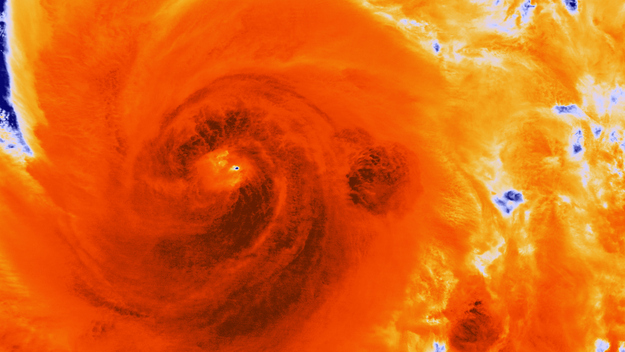“MODELS SHOW PRESSURE WELL BEYOND WHAT HAS EVER BEEN OBSERVED NEAR THE NJ/NY COAST (EVEN EXCEEDING THE 1938 LONG ISLAND EXPRESS [HURRICANE])”
writes NOAA’s Hydrometeorological Prediction Center (HPC).
Connecticut meteorologist Ryan Hanrahan noted there has only been one tropical storm with the pressure below 960 mb in the last 60 years in the Northeast.
Bob Henson of the University Center for Atmospheric Research adds:
While a couple of hurricane landfalls in Florida have produced pressures in this range, most cities in the Northeast have never reached such values, as is evident in this state-by-state roundup. The region’s lowest pressure on record occurred with the 1938 hurricane at Bellport, Long Island (946 hPa).
You might ask yourself, aren’t hurricanes supposed to weaken as they head north? Why are these pressures so low? Or as the Weather Channel’s Bryan Norcross put it: “What the hell is going on?”
Norcross’ answer: “This is a beyond-strange situation. It’s unprecedented and bizarre… The strong evidence we have that a significant, maybe historic, storm is going to hit the east coast is that EVERY reliable computer forecast model now says it's going to happen.”
What does he mean? Well, it has a lot to do with upper atmosphere pressure, etc., but the simple explanation is this: the clash of the cold blast from the continental U.S. and the massive surge of warm, moist air from Hurricane Sandy will cause the storm to explode and the pressure to crash.
WJLA meteorologist Ryan Miller notes 66,549,869 people live in the National Hurricane Center’s track zone for Sandy. A large percentage of these people will likely contend with tropical storm force winds – 40-60 mph, if not somewhat greater.
Let's conclude with this note posted in the blog by AccuWeather senior Vice President Mike Smith:
A very prominent and respected National Weather Service meteorologist wrote on Facebook last night,
I’ve never seen anything like this and I’m at a loss for expletives to describe what this storm could do.
Lovely.


